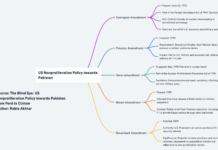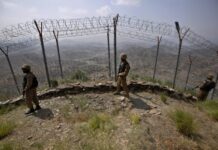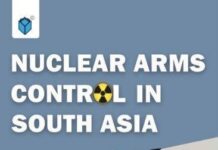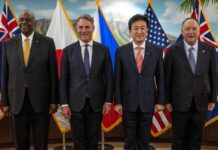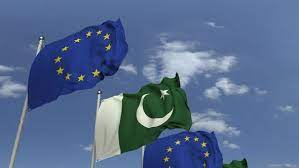Ayesha Malik
Pakistan’s next tranche of GSP+, which allows for tariff-free trade to the European Union(EU), will now reportedly be contingent on its ratification of the Rome Statute which allows the International Criminal Court to have jurisdiction over its territory. Pakistan along with certain other developing countries have been forced to ratify a number of international human rights treaties to access these trade benefits but those are nowhere near as much of an encroachment on Pakistan’s sovereignty as compared to its being a State party to the ICC. Not only will this open up Pakistan’s armed forces and government officials to the threat of being tried in The Hague, it also means the country can be subject to international censure by a highly politicized and flawed court.
Neither the U.S., India, China, Russia nor Israel have ratified the Rome Statute in a bid to protect their servicemen from being tried by the Court. The U.S. even has a Hague Invasion Act which allows it to invade the Netherlands should an American ever find themselves in the docket. The ICC has been a subject of much criticism over the past two decades of its existence despite its noble ambitions of holding the perpetrators of terrible crimes accountable. These criticisms are aplenty and also entirely accurate. It has been condemned for its prejudicial focus on Africa which has even led to withdrawals from the Court. Burundi, when withdrawing in 2017, stated that the ICC was “a political instrument and weapon used by the West to enslave other States.” It is also costly and inefficient, as attested by the UK in its statement to the 17th ICC Assembly of State Parties which said: “we cannot bury our heads in the sand and pretend everything is fine when it isn’t…After [nearly] 20 years, and 1.5 billion Euros spent we have only three core crime convictions.” It is also entirely political, with the Security Council able to refer situations to the Prosecutor and the P5 able to veto any of their conduct being sent to the Court, opening up questions of who is immune to international sanction and who is not.
Lately, the Court has become even more problematic with the election of its new Prosecutor, a British-Pakistani called Karim Khan, who is too closely wedded to the interests of powerful States, namely the U.S. and Israel. After reopening the investigation into the situation in Afghanistan, he decided not to investigate crimes committed by Afghan national forces and U.S. armed forces. He said that due to the Court’s limited resources and the need to focus on crimes most likely to result in convictions, his office would focus on crimes allegedly committed by the Taliban and IS-Khorasan, deprioritising entirely those committed by the U.S. and its allies. These crimes are not small – the U.S. and Afghan forces have been accused of mass killings, summary executions, torture, rape, enforced disappearances, and arbitrary detention. All crimes which the ICC should be looking into, but isn’t, for seemingly no other reason than that it doesn’t want to annoy a powerful State.
The previous Prosecutor, Fatou Bensouda, had done far more to ensure the accountability of powerful States. She even opened an investigation into the situation in Palestine and the Pre-Trial Chamber responded to the core issue of whether Palestine was a state with an affirmative after which the investigation began. A number of countries, including Germany, arguably the most powerful country in the EU, objected and stated it would argue the Court’s jurisdiction did not extend there as Palestine was not a State. However, Prosecutor Khan has not issued a single public statement or taken any public action regarding this investigation for the full year he has been in office and Jerusalem has since apparently breathed a sigh of relief. He has instead been heavily focused on the investigation of Ukraine indicating how much he acts at the behest of the powerful West to the detriment of those who most require accountability for the crimes committed on their soil.
Many human rights activists, most of whom receive EU funding to run their organisations, enjoy the ability to bash Pakistan with the trade stick in order to force human rights compliance, but the language of ‘human rights’ is rarely wielded without political aspirations. We need to look at Sri Lanka to see how this plays out to erode the autonomy of developing countries. Sri Lanka was granted GSP+ status after the tsunami of 2004 which was withdrawn in 2010 supposedly because then President Rajapakse’s government committed gross human rights violations against the Tamil Tigers during the civil war. The real issue, however, seemed to be China’s influence in Sri Lanka and not ‘human rights’ concerns which were ongoing long before this revocation. The removal of GSP+ was to force the President to end his close ties with Beijing as these concerns were only raised when China started investing and supplying arms to the country.
Similarly, Pakistan is censured for human rights violations and threatened with the revocation of GSP+ when it fails to comply with Europe’s political aims. The last time this happened it was rumored that the EU was only making an issue of religious minorities’ rights because of Pakistan’s support for the Taliban. As G7 countries seek to rival China with their own infrastructure projects, we will probably see more EU incursions in Pakistan’s foreign and security policy decisions, with ever greater promises for trade. If we are forced to ratify the Rome Statute, not only would we risk seeing Pakistani servicemen on trial at The Hague but we would also be exposed to the political manipulations of more powerful and hypocritical Western countries. It is important to remember that there are two types of countries; those which are sovereign and those which are not. It is crucial that in the pursuit of trade we don’t (again) become the latter.
Ayesha Malik is a Research Fellow at the Research Society of International Law and Team Lead for the Conflict Law Centre.



